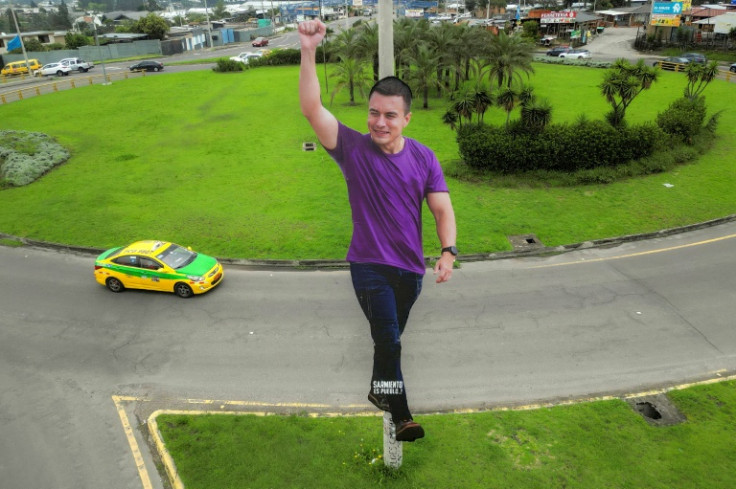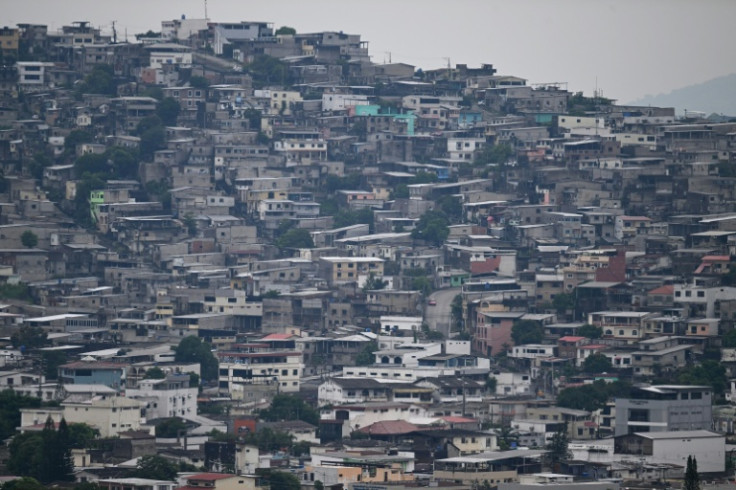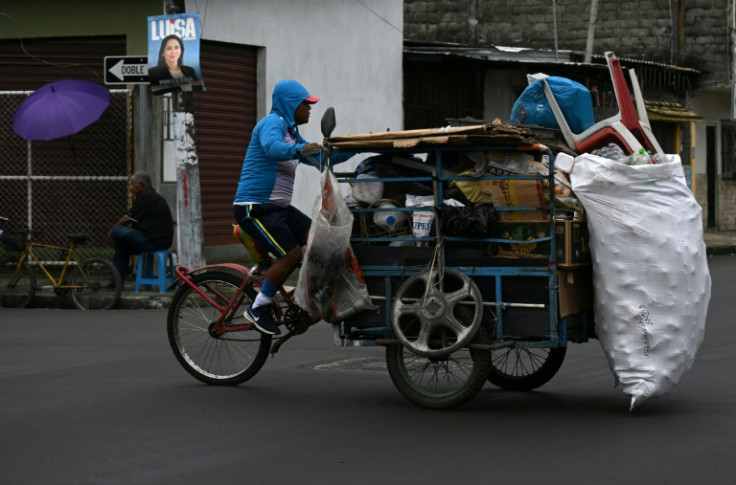
Ecuador's incumbent president and his leftist challenger have made their final pitch to voters ahead of Sunday's razor-tight election, with jobs, crime and an appeal to women voters dominating campaign-closing arguments.
The too-close-to-call runoff vote features 37-year-old Daniel Noboa and 47-year-old rival Luisa Gonzalez, who is bidding to become the country's first woman president.
On Friday, the campaigns entered a period of silence, a strict booze ban was in force and the government limited the number of foreigners coming into the country -- ostensibly to prevent disruptions.
Close to 14 million Ecuadorans must decide who will run their violence-plagued nation for the next four years.
"There is no work and insecurity is on the rise" said 29-year-old mum Adela, who did not want to give her full name.
"They always make promises, but when they are elected, they never fulfil them."
A Noboa win would likely spell more "iron fist" policies that have had mixed success in quelling violence turbocharged by the ultra-lucrative drug trade.
Ecuador suffered one murder an hour in January and February, the bloodiest start to a year on record.
Noboa wants to see US troops deploy to Ecuador to tackle a plethora of cartels wrestling to control the flow of cocaine from Colombia and Peru, through Ecuadoran ports to Asia, America and Europe.
If Gonzalez wins it would signal a sharp shift to the left and a likely cooling of Ecuador's relations with the United States and its president, Donald Trump.
Gonzalez is closely allied with ex-president Rafael Correa, who delighted in lobbing barbs at Washington during his decade in office.
He now lives in exile in Belgium, avoiding a corruption conviction he claims is politically motivated. He remains a deeply polarizing figure in his homeland.
Ecuadorans appear equally divided over which political path they now want to choose.
In February's first round of voting less than a percentage point, or 17,000 votes, separated Noboa and Gonzalez.
On Sunday, with more than a dozen also-ran candidates shorn from the ballot, hundreds of thousands of votes are up for grabs.
Gonzalez has won the backing of powerful indigenous leader Leonidas Iza, who won half a million votes in the first round. But it is unclear if his voters will remain united.
Ecuadoran polls, which have proved less than reliable in the past, show the second round as a virtual tie.
Both candidates on Thursday held final campaign events in Guayaquil, the country's largest city, economic capital and the epicenter of drug violence.
Gonzalez made a late play for women voters, proposing low-interest loans of up to $40,000 for single mothers like herself.
During Noboa's time in power, she said, "violence, poverty and unemployment has hit us women hardest."
Despite holding the presidency and coming from one of the country's richest families, Noboa presented himself as an outsider and the candidate of change.
"The country does not deserve to be mistreated by the same old politicians," he said, targeting his rival's ties with former president Correa.
Some analysts fear a tight result could spark claims of fraud and lead to a government with a weak mandate.
"If the difference is very small, the government will be born with a problem: It has almost half the country against it, and that weighs heavily, making it more difficult to govern," said Simon Pachano of UN-backed social sciences institute FLASCO.










